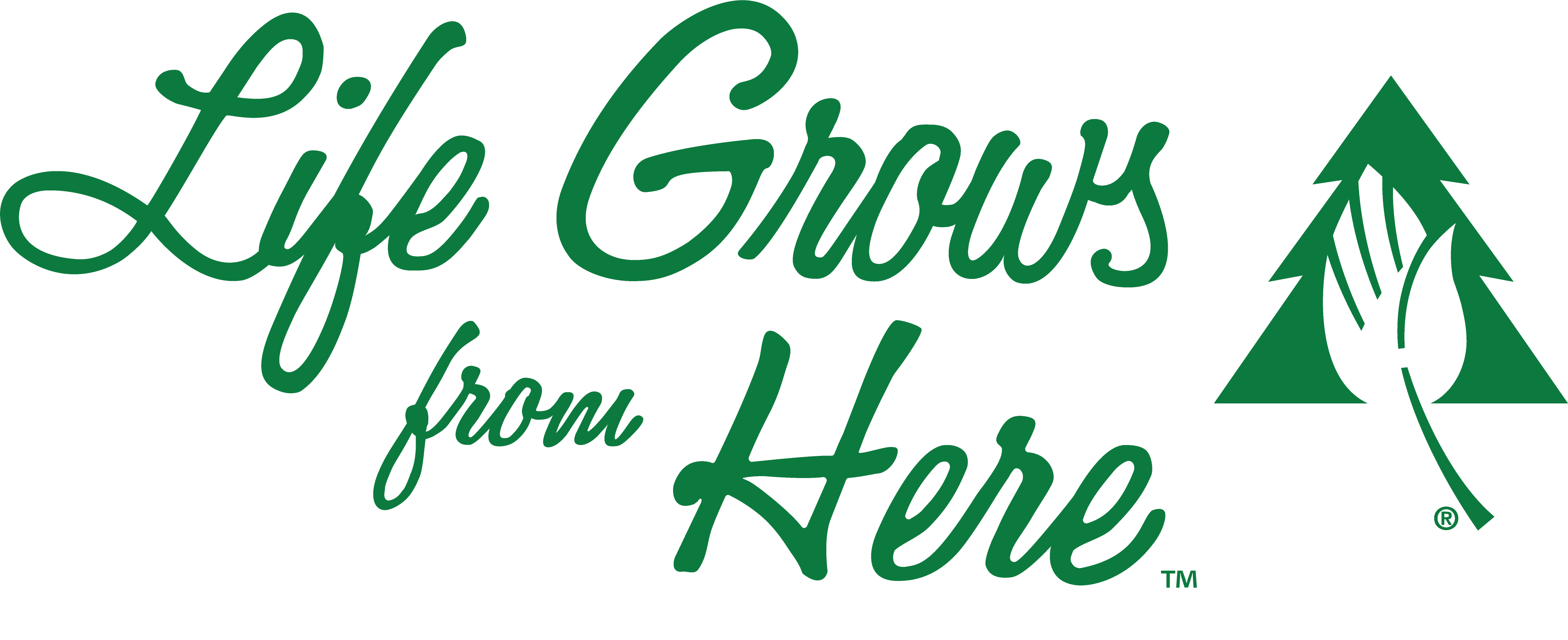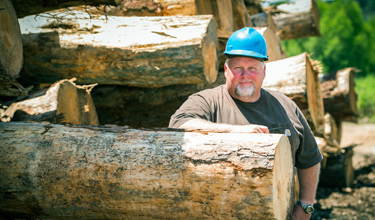
At PotlatchDeltic we understand our success is dependent on our most important asset – our employees. We have formal and informal development programs that encourage professional growth and advancement. We place a premium on developing our employees and promoting from within.
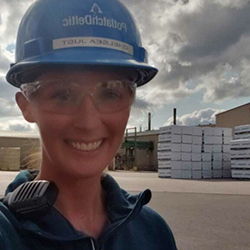
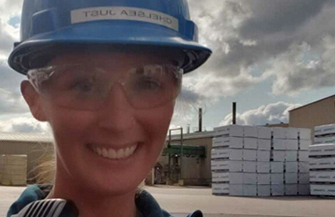
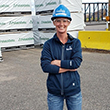
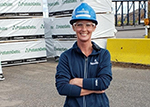
After lumber is assessed for quality and receives the stamp of approval, it’s sent to the finished product yard. Chelsea spent 5 years at the Bander checking bundle quality and placing her name on the tags that will go on each unit for shipment.
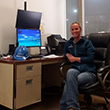
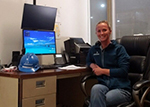
Office time for a supervisor at the mill is minimal, with most of their time spent out in the mill monitoring production. Towards the end of each shift, reports are gathered from each machine operator and compiled into a summary for an overall communication to supervisors.
I grew up in the small town of Big Bay, Michigan with a passion for exploring the outdoors and being in the woods. My father was a logger so forestry has always been a part of my family. After high school I stayed in the area and attended Northern Michigan University (NMU) in Marquette, Michigan, where I began pursuing a degree in Construction Management. Knowing I needed a job to help pay for college, I applied and was hired on as a temporary employee on the cleanup crew at PotlatchDeltic’s lumber mill in Gwinn, Michigan where I worked for several years while earning my degree.
After graduating with my degree in Construction Management, I started work as a project manager assistant with a local construction company. However, once the project was completed, I decided to return to PotlatchDeltic as a temporary worker. I was quickly hired on as a permanent employee and became a Bander Operator at the mill. My job was to look for any imperfections in the lumber, monitor the tags, ensure correct labeling, and ultimately decide whether the product was ready for shipment or if it should be sent back through to fix any issues. I spent almost five years working as the Bander Operator, perfecting my eye to make sure that only the best product was shipped to customers. While working as a Bander Operator, I also cross trained on many pieces of equipment and began to broaden my skills at the mill. I’ve worked on all three stackers, the grade line, and the debarkers.
In January of 2020, I decided to advance my career with PotlatchDeltic and accepted a Relief Supervisor position. I knew I still had a lot to learn about the sawmill side of production, but I spent time with other supervisors asking questions and continuing to expand my knowledge so that I could be a confident leader that my team would look to for guidance and support.
Since starting as a Relief Supervisor, I have been thrilled to learn about all of the different aspects of the mill. I continue to enjoy teaching and training new employees and am always working to develop a stronger team with an emphasis on safety, good communication, and experiences.
In late 2020, our mill had an opening for a Quality Control Supervisor. After the interview process and a few sleepless nights awaiting the decision, I was offered the position! Never have I felt so much overwhelming excitement at a workplace in my life. I am looking forward to continuing my career at PotlatchDeltic and working as a team to produce the best quality product. I’m always out to make a difference no matter how small it is. Standing at only 5’2” myself, I’d like to leave you with my personal favorite motto, “Sometimes the smallest changes can make the biggest differences”.
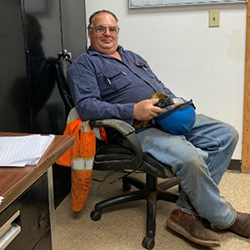
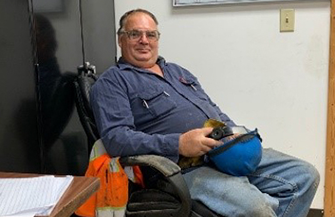
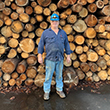
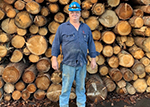
Our millwrights conduct safety and performance checks around the mill to make sure all machinery and equipment is running properly. Here is Johnny inspecting the log infeed deck.
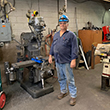
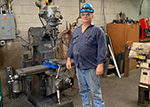
Millwrights perform a variety of tasks around the mill. One of their many jobs is to assess and repair custom machine equipment used in the mill process.
I am from the small town of Arnold in Michigan’s Upper Peninsula. From the time I graduated high school in 1983 through the late 1990s, I worked in the woods for my uncles running logging machines, felling trees, and selling the logs to a local paper mill. As the years went on, I continued the family tradition and was self-employed, working in the woods. I had my own log forwarder, would fell trees, then sell it to a trucker that had his own company. Back then it was as easy as just selling to the contractor on the side of the road!
After several years of working for myself and then eventually working for a local paper mill, I decided that it was time for a job that offered health insurance benefits that could support my family of four. At that time, I had 13 relatives that were working at the Gwinn, Michigan mill . Having worked there for several years, all my relatives assured me it was a great place to work, and in 2005, I was hired to run equipment, but it turned out to be a lot more.
As soon as I started, the maintenance supervisors asked if I'd be interested in training to work on the maintenance side of the mill. The next thing I knew I was taking a welding test, being interviewed and was offered a Millwright job, where I have worked ever since. Over the years, I’ve moved up through all of the Millwright positions and am currently a Millwright AA - the second highest position you can hold as a Millwright. Most recently, I’ve been working as a Radio Runner Millwright. Our job is to perform emergency machine repairs to get the mill back up and running until the machine center champions can get in and fully repair the machines, so we don’t lose valuable production time.
As for my personal life, I’ve been married to my wife Barbara for 32 happy years. We live on a farm with cows, chickens and goats. In my free time, I enjoy working around the house and spending time with both of our daughters and our three grandsons Jeffrey, Tristan and Caden.


